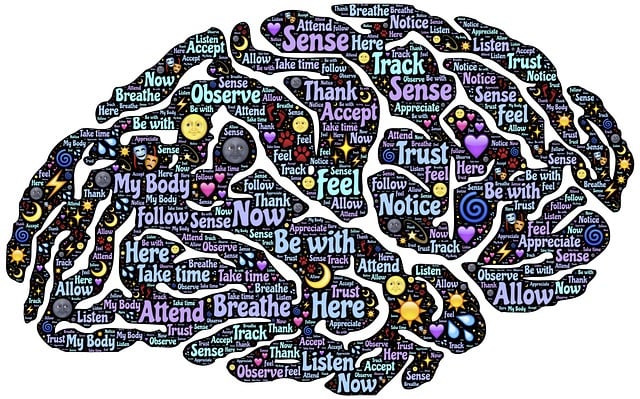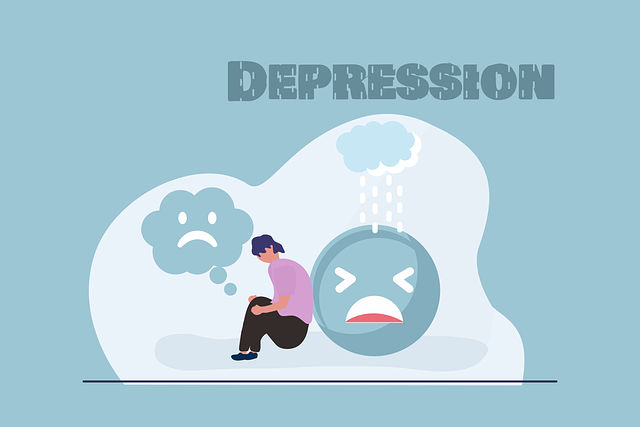Chronic stress, a common challenge, can harm mental and physical health, leading to issues like anxiety, depression, and physical problems. Parker Mindfulness Therapy offers a powerful solution by teaching present-moment awareness and non-judgmental thought observation, reducing stress and improving well-being. This approach is crucial for work environments at risk of burnout, and it complements Mental Health Policy efforts. By integrating mindfulness practices into daily routines, individuals can manage anxiety, promote calmness, build resilience, and prevent burnout. Parker Mindfulness Therapy's focus on present-moment awareness and cultural sensitivity ensures inclusive education, empowering individuals to navigate stressful situations with optimism and resilience.
Stress management is a vital skill in today’s fast-paced world. This article explores effective techniques, with a particular focus on the benefits of Parker Mindfulness Therapy. We delve into the profound impact of chronic stress and how mindfulness can serve as a powerful tool for coping. By understanding stress and its effects, we’ll uncover practical strategies to teach individuals how to manage it, using research-backed methods like Parker Mindfulness Therapy to promote mental well-being and enhance overall quality of life.
- Understanding Stress and Its Impact
- The Role of Parker Mindfulness Therapy
- Practical Techniques for Effective Stress Management Teaching
Understanding Stress and Its Impact

Stress is a natural response to demanding situations, but when it becomes chronic, it can significantly impact overall well-being. Understanding stress involves recognizing its physical and psychological effects on the body and mind. High levels of stress can lead to various issues such as anxiety, depression, insomnia, and even physical ailments like increased blood pressure and weakened immune systems. This is where Parker Mindfulness Therapy comes into play, offering a powerful tool for managing and mitigating these effects.
The impact of prolonged stress extends beyond the individual, affecting productivity in personal and professional spheres. It can contribute to burnout, a state of emotional, physical, and mental exhaustion, often seen in high-pressure work environments. Reduction efforts aimed at addressing mental illness stigma play a crucial role in encouraging individuals to seek help for stress-related issues. Additionally, trauma support services are vital for those who have experienced traumatic events, as these can be significant triggers for chronic stress. By implementing effective stress management techniques, individuals can not only prevent burnout but also enhance their resilience and overall quality of life.
The Role of Parker Mindfulness Therapy

Parker Mindfulness Therapy is a highly effective approach that teaches individuals to cultivate present-moment awareness, enabling them to manage stress and improve overall mental well-being. This therapeutic technique encourages folks to observe their thoughts and emotions without judgment, fostering a sense of calm and clarity. By integrating mindfulness practices into daily routines, individuals can enhance their ability to cope with challenging situations, thereby reducing the risk of burnout, especially among healthcare providers who often face high-stress environments.
In today’s fast-paced world, where mental health issues are on the rise, Parker Mindfulness Therapy offers a valuable tool for self-care routine development. It provides individuals with the skills to navigate life’s stressors and promotes better emotional regulation. Moreover, this therapy complements Mental Health Policy Analysis and Advocacy efforts by empowering people to take charge of their mental health and well-being, contributing to a holistic approach in addressing burnout prevention strategies for healthcare providers.
Practical Techniques for Effective Stress Management Teaching

Teaching effective stress management techniques is an essential part of holistic well-being education. One highly effective approach is incorporating mindfulness practices, as advocated by Parker Mindfulness Therapy. This therapeutic method encourages individuals to focus on the present moment, reducing anxious thoughts and promoting calmness. Simple yet powerful tools like mindful breathing exercises, meditation, and body scans can be easily integrated into daily routines, providing students with practical ways to manage stress in various settings.
Beyond individual practices, fostering cultural sensitivity in mental healthcare practice is crucial for inclusive stress management education. Understanding the impact of cultural beliefs and experiences on one’s response to stress allows teachers to adapt their guidance accordingly. Crisis intervention guidance, tailored to diverse backgrounds, ensures that students receive relevant support. Encouraging positive thinking and reframing negative thoughts are also effective strategies taught in this context, empowering individuals to cultivate resilience and a more optimistic outlook during stressful situations.
In conclusion, effectively managing stress is a vital skill in today’s fast-paced world. By understanding the profound impact of stress on our lives, we can appreciate the importance of teaching practical techniques like those offered by Parker Mindfulness Therapy. This approach equips individuals with tools to navigate life’s challenges, fostering resilience and overall well-being. Through simple yet powerful practices, one can find inner calm, enhance focus, and reduce the negative effects of stress, leading to a more balanced and fulfilling life.








